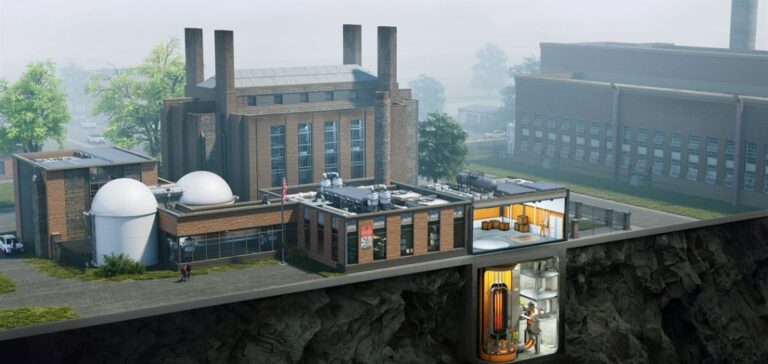NANO Nuclear Energy Inc. has signed a strategic agreement with the University of Illinois at Urbana-Champaign to build the first KRONOS MMR (Micro Modular Reactor) research reactor on the university campus. This collaboration formalises the prototype’s site and initiates preparatory work necessary for obtaining a construction permit from the United States Nuclear Regulatory Commission (NRC). It represents the first physical step towards commercialising the KRONOS energy system, developed to meet growing demands for reliability and safety in the nuclear sector.
Deployment of the KRONOS MMR on a university site
The agreement assigns the University of Illinois a central role in regulatory management, site design, and involvement in the certification process. The institution will notably contribute to the drafting of the Preliminary Safety Analysis Report (PSAR) and the Environmental Report (ER), in coordination with federal authorities. The campus will become a demonstration and research platform dedicated to microreactor technologies.
Initial works will include a full geotechnical study to characterise subsurface conditions and ensure the site’s compliance with nuclear safety requirements. This phase will determine critical parameters for the reactor’s configuration and integration, while initiating the process of submitting the construction permit to the NRC.
Division of responsibilities between partners
NANO Nuclear will be responsible for technical design, systems engineering, and infrastructure implementation, while the university will handle coordination with local stakeholders, operator training, and constructability assessment. This division aims to optimise both parties’ capabilities while embedding the project in an academic and technological framework.
The KRONOS MMR system is defined by its modular and containerised architecture, offering among the highest safety margins in its class. It is designed for rapid integration into energy grids, industrial facilities, and decentralised applications. No new scientific breakthrough is required, as it is based on proven technologies ready for immediate industrialisation.
Towards microreactor industrialisation
This partnership marks a significant advancement for NANO Nuclear, now positioned as a leading actor in the deployment of compact nuclear reactors in the United States. By enabling direct interaction among researchers, regulators, and students, the project introduces an innovative model of cooperation between the academic sector and the nuclear industry.
According to Caleb Brooks, professor at the university’s engineering faculty, the initiative could become the most advanced nuclear research platform ever built on a U.S. campus. He highlights its potential for full-scale technology demonstration, skills development, and regulatory awareness.






















